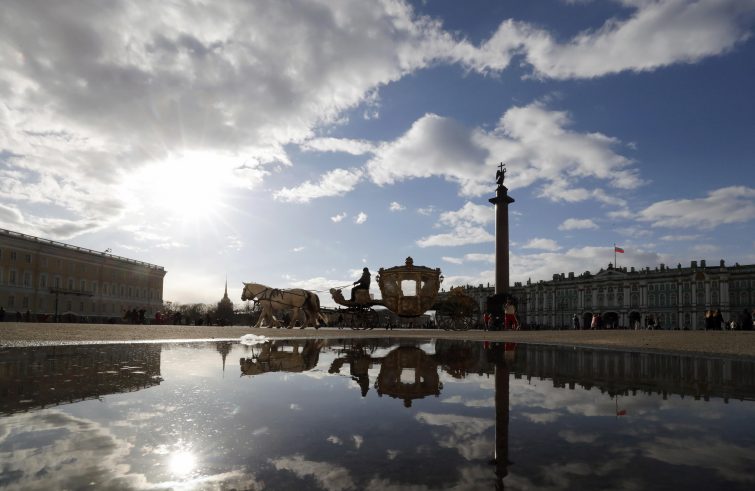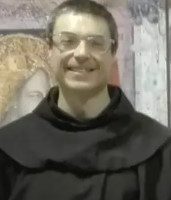
“I honestly believed things would not go this far. I might be naive, but I was sure that the military operations on the Ukrainian border were just government-to-government provocations, and instead… On February 24, we woke up to a much harsher reality”, says Fr Iuri Cavallero, parish priest at St Petersburg’s Most Sacred Heart of Jesus, one of six Catholic parishes in the city
The burden of sanctions. Several weeks after the tragedy of February 24, Russia is experiencing the economic impact of the war. The Euro to Russian Ruble exchange rate, which in the previous months had consistently fluctuated at 1 to 85, skyrocketed to over 100 in just a few days. The demand for payments in the national currency ( for gas in particular) froze devaluation (the exchange rate is now 1 to 73), but the economic sanctions on the economy are extending beyond the financial sector into real economy. A number of foreign retail groups have shut down, leaving many workers unemployed or on temporary lay-off. Plagued by sanctions, Russia has drastically reduced imports, including those from Italy, and some products are already hard to find: such as anxiolytic medications, reportedly running out in almost all Russian pharmacies.
 Online news. “Public opinion is divided in its response to ongoing developments,” says Father Iuri. “People took to the streets in many Russian cities in the first few days after the outbreak of the war, while leading figures in the cultural and artistic worlds signed petitions stating their opposition to what was happening.
Online news. “Public opinion is divided in its response to ongoing developments,” says Father Iuri. “People took to the streets in many Russian cities in the first few days after the outbreak of the war, while leading figures in the cultural and artistic worlds signed petitions stating their opposition to what was happening.
But after the first few weeks, dissent has seemingly diminished, most likely also as a result of the new legislation in force.
However, there are of course others who fully support this military operation because they truly believe it is a fight for the liberation from Nazi-fascism.” Contrary to popular belief, however, keeping abreast of the situation in Ukraine is not at all hard. Indeed, the elderly may only be following and reading State-run media outlets, but young people, skilled in navigating the Internet and proficient in foreign languages, have no trouble accessing all information available.
An oasis of tranquillity. “In Moscow and St Petersburg (respectively 900 and 1200 kilometres from Kiev) the situation is quiet, yet several priests have decided to return to their home countries while some religious congregations have discontinued their presence in Russia, probably due to ongoing difficulties in receiving donations from European benefactors. While no one has a right to pass judgement on these decisions, it is nevertheless true that the faithful might feel hurt or even betrayed if a priest or religious community leaves the country. In this context, our parish community is an “oasis of tranquillity.” It is small and rather homogenous. It is not affected by particular tensions and it carries out its pastoral activities with relative serenity.”
The Catholic community. The Catholic community, which in Russia represents less than 1% of the overall population, comprises a mixed group of people in St Petersburg, including Russians as well as Lithuanians, Belarusians, Poles and Ukrainians. In response to Pope Francis’ heartfelt invitation, on March 25 they gathered with their auxiliary bishop to celebrate “the solemn Act of Consecration of humanity, and Russia and Ukraine in particular, to the Immaculate Heart of Mary”, and to invoke the grace of peace. The priests and clerics of the deanery that the Church of the Most Sacred Heart of Jesus forms part of – six parishes in St Petersburg plus other communities in neighbouring villages –
expressed their determination to continue serving this people, and this Church, in the best possible way,
“as witnesses of the Gospel, called to be agents of peace, consolation, reconciliation and concord in a social and ecclesial context marked by the emergence of particularly difficult and tense situations.”
Hopes and prayers. Perhaps a visit by Pope Francis to Russia could be helpful, but its practical realisation is questionable. The pastoral journey that was being planned before the outbreak of hostilities, i.e. the meeting with the apostolic nuncio, the bishops and the Catholic community in Russia, is likely out of the picture. However, a diplomatic meeting between Heads of State could still happen. It would nonetheless enable the Pontiff to reiterate his request for a “ceasefire”, which he has been calling for since the outbreak of the conflict as a fundamental precondition for any peace talks. “That is why we will continue to pray,” concludes Father Iuri, “in order to explore all feasible avenues other than the sending and use of weapons.”
*Popoli e Missione









